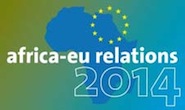By postponing next week’s meeting of African trade and agriculture ministers in Addis Ababa, the African Union risks losing a real opportunity to promote the opening up of intra-African trade to boost economic growth and develop greater food security on the continent. It’s vital that new dates are set soon to allow high-level discussion of these crucial issues to move forward. The African Union unexpectedly postponed the Joint Conference of Ministers of Agriculture and Ministers of Trade scheduled to take place on 1st and 2nd November in Addis Ababa just four days before it was ...
Each year ECDPM publishes a Policy Brief, on Challenges for EU-Africa Relations, outlining key events and expected trends for the year to come. This year’s ‘Challenges Paper’ will aim in particular to cover the preparatory work for the EU-Africa Summit in 2014, and the major issues that will influence it or be addressed there, as well as the impact these issues might have on future EU-Africa relations. This article provides an initial indication of our plans for the paper that will be published at the end of year. If you have a different take on ...
Andrew Sherriff co-authored this article. As EU budget negotiations are moving to the concluding phase (Figure 1), the ultimate outcome for development and EU external action spending is still unknown. Clarity on key questions, such as an indication of the amount of development funding available, remain clouded by the impasse and posturing in the wider negotiations. The Cyprus EU Presidency, in its role as “honest broker”, is currently lowering expectations, by saying that if agreement cannot be found on the overall level of the EU budget then all elements inside and outside the budget “will ...
For some, this was very poor timing or even a joke. For others the prestigious Nobel Peace Prize could not come at a better moment, now that the EU is confronting the deepest economic and financial crisis in its history. Never in the past the European project has been so unpopular amongst its citizens. Some EU member states seem to be more out than in the EU. In spite of the Lisbon Treaty - meant to reinforce the Union’s cohesion and strengthen its standing in foreign relations - Europe is losing ground in the world. ...
‘Resilience’ is topping the list of new buzzwords in international cooperation rhetoric lately. Many policy makers, including from the European Commission, are using it abundantly. Thus the policy proposal entitled ‘The EU Approach to Resilience: Learning from Food Security Crisis’ the EU launched last week is an important document because it frames the term. Up to now, EU humanitarian aid and development cooperation actors used the word - which has its origin in material sciences, psychology and ecology – without any conceptual underpinning and orientation on how to translate it into practice. In its policy ...
With the new African Union Commission (AUC) set to take office in a matter of days, many are curious to see how it will differ from the previous one. In this sense it crucial to looking at who the Commissioners will be. At first sight, one cannot overlook the elements of continuity with the previous AUC led by Jean Ping: Erastus Mwencha (Kenya) has been confirmed as Deputy Chairperson, and so were the Commissioners Elham Mahmoud (Egypt) in her position as for Infrastructure and Energy, Ramtane Lamamra (Algeria) for Peace and Security and Rhoda Peace ...
The new African Union Commission (AUC) College will assume office on Monday 15 October. The election of the Chairperson of the Commission raised hope that there is renewed interest in the organisation, especially from its 54 African member states. Never has an election of the continental leadership been this tightly contested leading observers to suggest that they are a turning point in the history of the Union: from now on ,meritocracy will take precedence over diplomacy and unwritten rules, such as regional quota for the allocation of posts, or that the chairmanship cannot be assumed ...
Many trade corridors in Africa were designed in colonial times, primarily to serve extractive industries and ease the transport of goods from the interior of the country to the ports, and back. Even those corridors, which have been developed more recently – such as the Maputo corridor (connecting South African provinces, including the economically developed areas around Jo’burg and Pretoria, with Mozambique’s capital), which is said to be the most efficient in terms of facilitating the transport of goods – tend to target large enterprises, while seemingly failing to benefit smallholders. If designed well, trade ...

















